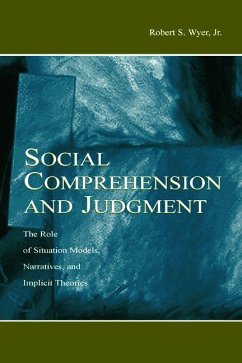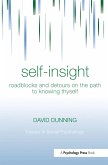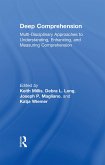This text examines the processing of information that people encounter in their everyday lives. It proposes a general theory about the way in which information acquired in everyday life is comprehended and represented in memory, and how it is later used as a basis for judgments and decisions. A major emphasis throughout is on the construction and use of narrative representations of knowledge and the way that visual images influence the comprehension of these narratives and the judgments based on them. The role of affective reactions in this cognitive activity is also discussed. The book is divided into three sections. Part one provides a conceptual overview by outlining the general theoretical framework focusing on assumptions about the storage and retrieval of information and reviewing recent research on the impact of knowledge accessibility on judgements and decisions. The second section deals with the comprehension of information. The last part describes the inferences that are based on information conveyed in social situations. This book should be of interest to advanced students and researchers interested in the areas of social cognition or social information processing.
First Published in 2003. Routledge is an imprint of Taylor & Francis, an informa company.
First Published in 2003. Routledge is an imprint of Taylor & Francis, an informa company.









